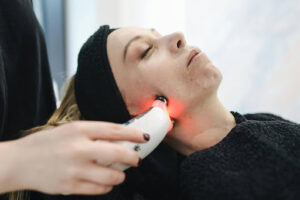Choosing a facial for anti-aging benefits can feel overwhelming with so many options out there. To keep your skin looking youthful and radiant, it’s crucial to pick a facial that targets your specific needs. With the right choice, you can boost your skin’s firmness and reduce fine lines effectively.
In this guide, we’ll break down how to select the perfect facial to help you combat aging. From understanding what each treatment does to matching it with your skin type, we’ll make it easy for you to make an informed decision and keep your skin glowing for years to come.
Understanding Skin Elasticity

Skin elasticity is crucial for preserving a youthful and smooth appearance. It refers to the skin’s ability to stretch and then return to its original shape, which helps keep the skin firm and free from sagging. If you’re seeking ways to enhance this natural flexibility, consider exploring cellulite treatment Toronto to help maintain your skin’s youthful resilience.
What Affects Skin Elasticity?
Several factors impact how elastic your skin is. One big factor is age. As we get older, our skin loses collagen and elastin—two proteins that help it stay tight and flexible. Genetics also play a role. Some people naturally have more resilient skin due to their family history.
Why is Skin Elasticity Important?
Good skin elasticity helps your skin recover quickly from everyday movements and changes. It makes sure your skin remains smooth and less likely to develop wrinkles and saggy areas. When skin elasticity is compromised, it can lead to signs of aging, like fine lines and drooping.
How to Maintain Skin Elasticity
To keep your skin elastic, staying hydrated is crucial. Drinking plenty of water helps keep your skin plump. A balanced diet rich in vitamins C and E supports collagen production, which keeps your skin firm. Regular exercise and a good skincare routine can also help maintain skin elasticity.
Immediate Post-Treatment Care

Immediate post-treatment care is crucial to ensure the best results from your skincare procedure. After a treatment like a facial or a laser session, your skin needs extra attention to heal properly and maximize its benefits.
Follow the Aftercare Instructions
Each treatment comes with specific aftercare instructions. Following these is key to avoiding complications and enhancing the results. This might include avoiding makeup for a few hours or applying a special soothing cream.
Keep Your Skin Hydrated
Hydration is vital right after your treatment. Drinking plenty of water helps your skin heal and stay plump. Using a gentle, hydrating moisturizer can also prevent dryness and support the recovery process.
Avoid Sun Exposure
Sunlight can be harsh on freshly treated skin. It’s best to avoid direct sun exposure for at least a few days. If you need to go outside, apply a broad-spectrum sunscreen with a high SPF to protect your skin.
Refrain from Touching or Scratching
Touching or scratching your skin can cause irritation and even damage. Be gentle with your skin and avoid picking at any peeling or redness.
Long-Term Strategies for Maintaining Skin Elasticity

Maintaining skin elasticity over the long term is essential for keeping your skin youthful and firm. While immediate post-treatment care is important, adopting long-term strategies will help you sustain your skin’s flexibility and prevent early signs of aging.
Balanced Diet
Eating a balanced diet is crucial for healthy skin. Foods rich in vitamins C and E, like oranges and almonds, help support collagen production, which keeps your skin firm. Incorporate plenty of fruits, vegetables, and lean proteins into your meals to provide your skin with the nutrients it needs.
Regular Exercise
Regular exercise benefits your skin by improving blood circulation, which helps deliver essential nutrients to your skin cells. Activities like jogging, swimming, and yoga can also help tone your body, contributing to overall skin firmness.
Stay Hydrated
Drinking enough water is a simple yet powerful way to maintain skin elasticity. Proper hydration helps keep your skin plump and smooth. Aim for at least eight glasses of water a day and include water-rich foods like cucumbers and strawberries in your diet.
Consistent Skincare Routine
A consistent skincare routine is key to long-term skin health. Use gentle cleansers, moisturizers, and products with ingredients like retinoids or hyaluronic acid that promote elasticity. Regular exfoliation can also help remove dead skin cells and support fresh, youthful skin.
Avoid Harmful Habits
Habits like smoking and excessive alcohol consumption can damage your skin’s elasticity. Avoiding these will help your skin remain healthy and resilient. Instead, focus on lifestyle choices that support your overall well-being.
Professional Treatments and Consultations
Professional treatments and consultations play a crucial role in enhancing your skin’s health and appearance. While home care is important, sometimes expert help can take your skincare to the next level.
Types of Professional Treatments
There are various professional treatments designed to boost skin elasticity and overall health. For instance, microneedling involves tiny needles to stimulate collagen production, helping to improve skin texture and firmness. Another option is radiofrequency therapy, which uses heat to tighten the skin and reduce wrinkles. Laser treatments can also address issues like uneven skin tone and fine lines.
Benefits of Consultations
Consultations with a skincare professional can provide personalized advice tailored to your skin type and concerns. A dermatologist or esthetician can assess your skin’s condition and recommend treatments that are best suited for you. They can also help you understand what changes to expect and how to care for your skin post-treatment.
When to Seek Professional Advice
If you’re not seeing the results you want from your current routine or have specific skin issues, it’s time to consult a professional. They can offer advanced solutions and guide you through effective treatment options.
Monitoring Progress and Adjusting Routine
Monitoring progress and adjusting your routine are key steps in achieving and maintaining healthy, elastic skin. Just like any other goal, seeing how well your skincare plan is working can help you make the necessary changes to stay on track.
How to Track Your Progress
Start by keeping a simple skincare journal or taking regular photos of your skin. This can help you spot improvements or changes over time. Pay attention to factors like skin texture, firmness, and any new wrinkles or lines. Noting these changes will help you see what’s working and what might need tweaking.
When to Adjust Your Routine
If you notice that your skin isn’t improving or is reacting poorly, it might be time to adjust your routine. For example, if your skin feels dry or irritated, you may need to change your moisturizer or reduce the frequency of certain treatments. On the other hand, if you’re not seeing enough improvement, consider adding new products or consulting a skincare professional for advice.
Regular Check-ins
Regularly review your skincare routine and progress. Set aside time every few weeks or months to assess your skin’s condition and make any necessary adjustments. This helps ensure that your routine remains effective and continues to meet your skin’s needs.
Conclusion
Finding the ideal facial for anti-aging benefits doesn’t have to be complicated. By understanding your skin’s needs and choosing the right treatment, you’ll see noticeable improvements in your skin’s appearance. Remember, the right facial can be a game-changer in your skincare routine, helping you achieve that youthful glow.
